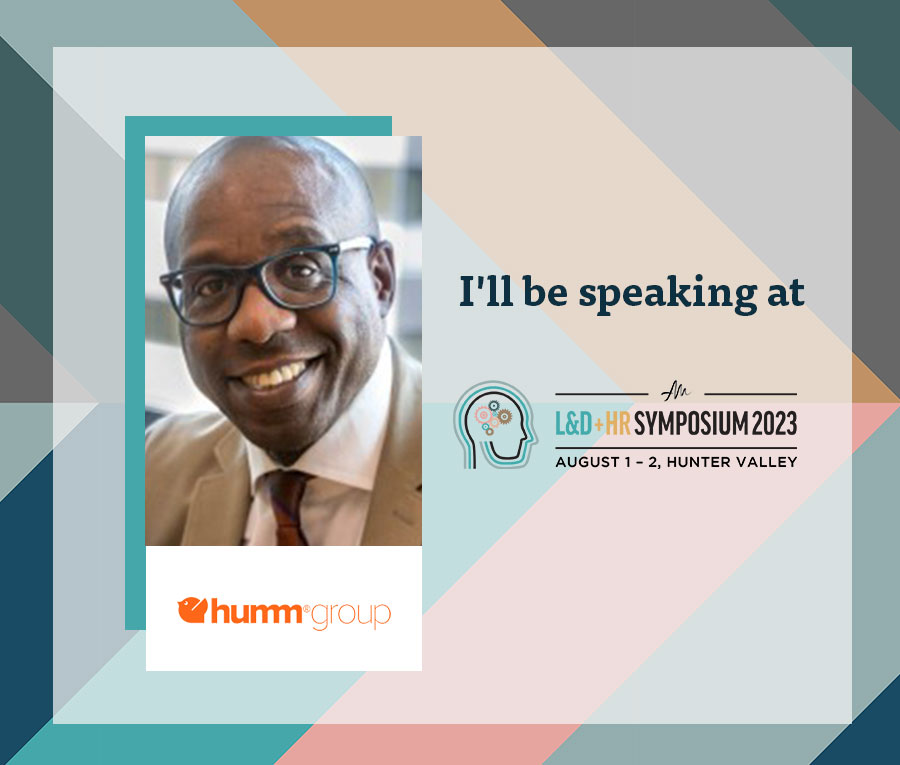An L&D and HR Conversation
With…
Jude-Martin Etuka
Former Head of Organisational Development
humm group



An L&D and HR conversation with… series will feature video interviews with leaders in Learning & Development and Human Resources, sharing learnings, trends and challenges from some of the region’s leading organisations.
How would you describe yourself in three words?
Jude-Martin: I would say human, mindful, and passionate.
What is the biggest challenge you’re facing in your role right now?
Jude-Martin: The biggest challenge being faced in my role currently is creating a sense of stability during uncertainty and change. That’s characteristic, I’m assuming, of many organisation organisations, but certainly with my organisation here at humm is about creating that sense of stability despite the whirlwind of change that’s going on.
What advice would you give to HR leaders supporting their people through period of change and disruption?
Jude-Martin: So I guess the advice I will give to fellow HR and OD type people is be less reactive to change and be a lot more responsive. Reacting and responding are two different things. Typically we tend to react the faster the change, the faster the reaction. Responding means the faster the change, the more we take a step back to view things and then respond accordingly.
What are some of the ways you’re prioritising the mental health and wellbeing of your employees at humm group?
Jude-Martin: So the mental health and well being of our employees at humm group is highly important and is right at the front of mind. So typically, some of the programmes that we’ve been running, not just recently, but more so recently, are things like focus on emotional intelligence, empowerment, self empowerment, how to hold an open conversation, and that’s really pertinent when it comes to performance and feedback.
We’ve run a number of mental health and wellbeing focused sessions around how to manage burnout and how to take care of self. So important, how to take care of self.
But also there are things around that psychosocial safety piece which is around vicarious trauma. I tend to call it vicarious trauma, but in emotion management studies it’s called emotion contagion. And how I have a personal responsibility to take care of myself and how I manage myself in the midst of emotions, heightened emotions, without being subject to the emotion, to those emotions, but really taking personal responsibility for managing myself and how I handle myself in the midst of emotional turmoil, which is very characteristic of the period that we’re in.
So we run a range of programmes, interventions, conversations with our employees about how to better manage these type of things.
What are your big priorities for the next 12 months?
Jude-Martin: I think that connects with the last question. And for us, it’s about personal accountability. It’s about accountability. How accountable am I for the standards that I walk by? How accountable and what level of self ownership do I have for the things that I do and how that relates to my team members? How do I manage my performance? How do I prioritise in the midst of having so many priorities and so personal accountability is a key priority for us.
And personal accountability, even though it’s distinct from collective accountability, they are intricately connected. Me taking personal accountability means that I actually care for what I do, but also I care for how what I do have an impact on others, on my teammates, on how we work together to achieve our company goals and to perform together.
It’s all about peak performance, really. And peak performance, as you know, is actually about enjoyability how I enjoy what I do because it has an impact on others that I work with.
What’s the best piece of advice you’ve ever received?
Jude-Martin: So the best piece of advice that I have been given, which I strive to live every single day, is to learn to stop.
We live in a society, in a world where it’s just constant one thing after the other, and we don’t stop. We are taught that stopping means that could mean amongst many things, that we are not clear. We don’t know what’s going on, we can’t make decisions, but actually stopping helps us to connect with our deeper selves.
And so the best advice that I’ve been given is stop before you start.
What are you most looking forward to at the L&D + HR Symposium?
Jude-Martin: I’m really looking forward to hearing a whole range of ideas around psychosocial safety and mental health in the workplace and how that impacts performance and growth. So I’m looking forward to hearing those ideas, but I’m also looking forward to sharing ideas as well and meeting new people and seeing how we can all work together to influence a more psycho, socially safe environment.
L&D + HR Symposium, 1-2 August 2023, will bring together 180 L&D and HR professionals for a day of conference featuring inspiring international keynotes and the best local case studies.